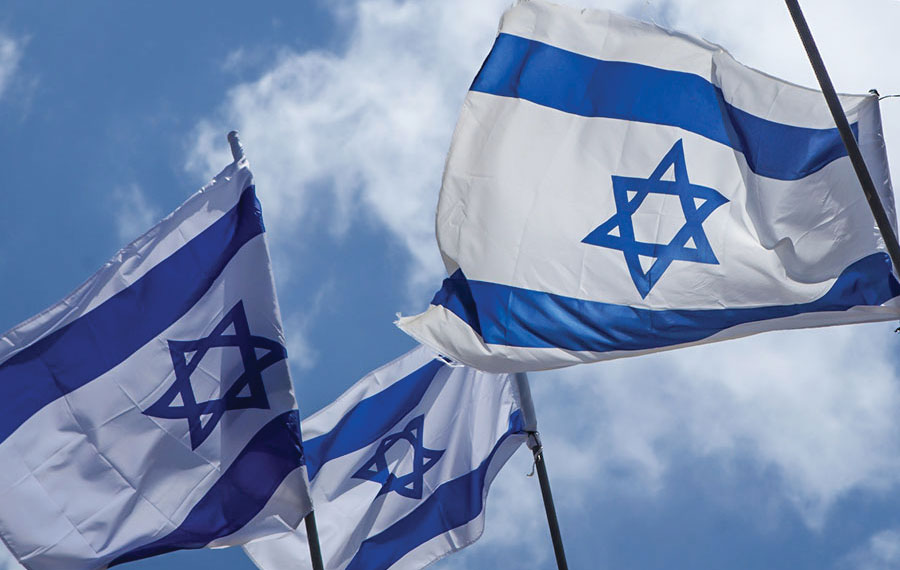
War and conflict are a messy business that rarely corresponds to the tidy accounts taught in schools. That certainly can be said about Israel’s struggle to be born and exist. Intellectual honesty demands a hard look at all aspects of the turmoil and its effects on Israelis and Palestinians.
Conflicts are always messier when opinions are fueled by religion. For many Jews, resettling the land of Israel after an absence of 2,000 years marked by wandering, persecution and near annihilation represents the attainment of a safe haven and the chance of becoming a “normal” nation.
From childhood, Palestinian children are taught that their ancestors had been living on the land for thousands of years and were uprooted by a European-Asiatic people with no valid claim to the land, displacing their parents and grandparents. The world stood idly by, they are told, and allowed this to happen because of guilt over the Holocaust. It is a sacred duty of every Palestinian to devote their lives and perhaps even to be martyred to drive out the “Crusader imperialist Jews,” they are taught.
The Arab-Israeli conflict is exceedingly complex. To couch it simply in terms of “an occupation of a land by a people who have no claim to it and the subjugation of its native people who have the sole rights to that land” completely negates the possibility that the other side has a narrative that ties them to the land, or even the possibility that the other side has a right to a narrative.
Lost in the war of ideas that underlies the conflict is the simple notion that this is simply a land dispute between two peoples who lay claim to all of the area referred to by some as Israel and by others as Palestine.
“Each side is taught to regard the other as stereotypical evil, the ultimate “other,” people to fear and loathe.”
In my view, the Israeli-Palestine conflict will never be resolved at its root cause until each side reaches a profound conclusion that the other has a valid narrative that binds them to that land.
Each side eventually must come to the realization that the other side “isn’t going anywhere.” Only then can the process begin toward true mutual respect, coupled with the understanding that in no way, shape or form can one side hope to exert total control over all of the land. After that is understood, both sides are left with three options: unending conflict, division of land where each side must compromise deep-seated religious beliefs, or living as equal citizens in one multiethnic society.
Teaching students only one side of the story, something that is becoming increasingly prevalent in American universities today, is not only intellectually dishonest but will ultimately perpetuate the conflict indefinitely.
At the root of this conflict is prejudice in its purest form. Each side is taught to regard the other as stereotypical evil, the ultimate “other,” people to fear and loathe. Very little effort is expended to bridge the gap by trying to meet as people on a large scale in good faith.
Much ink has been spilled over the years on the terrible cancer that is prejudice, which we all experience to a greater or lesser extent. Mostly, we read about the victims of prejudice and rightfully so, but not enough is said or written about the corrosive effect that being the target of prejudice has on its perpetrators. There are many forms of bigotry and the terrible cost that is paid by all involved. Most of us, when asked what prejudice is, describe racial prejudice. Although that is the most pervasive form of prejudice, especially in the United States, prejudice, in general, is about judging a person without having sufficient facts about that person.
Studying the effects of prejudice is becoming increasingly important during a time when there’s an upsurge of its ugly impact all over the world. Until both sides in the Arab-Israeli conflict move beyond their prejudice, the shootings, stabbings and bombings will never end.
Leo Rozmaryn is a reconstructive hand and microvascular surgeon and author of “Lone Soldier,” a historical fiction novel of romance, mistaken identity, war and politics set during the tensions between the U.S. and Israel during the early 1970s. For more information, visit lonesoldierbook.com.






















 More news and opinions than at a Shabbat dinner, right in your inbox.
More news and opinions than at a Shabbat dinner, right in your inbox.